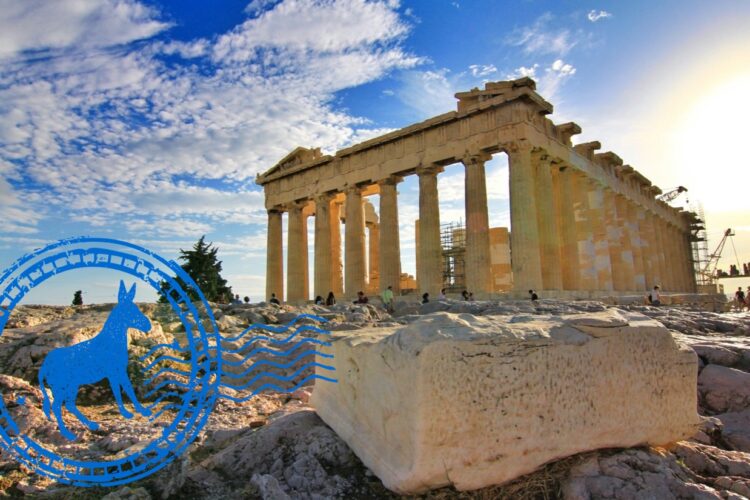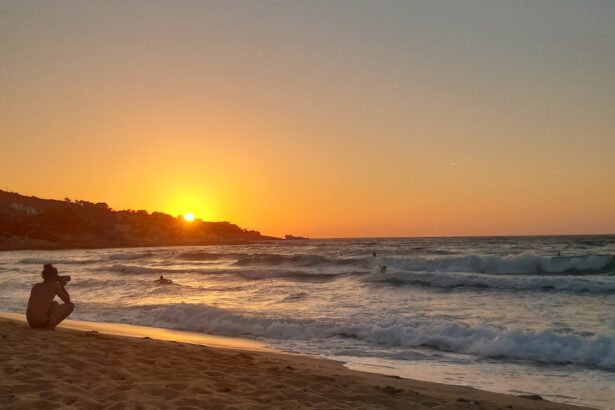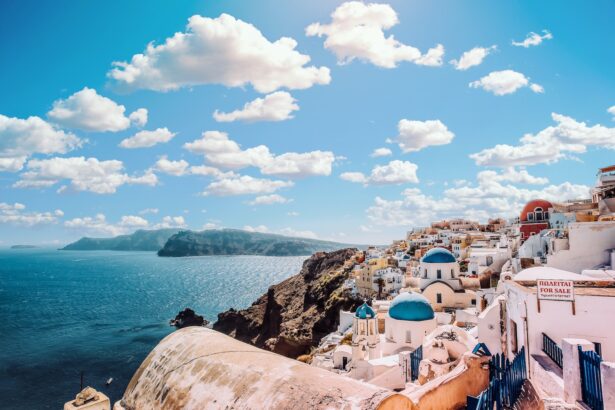Before we jump into a series of different topics, places, curated hotel lists, inside tips, suggestions and more, we thought it’s a good idea to begin our Greece for Nomads journey by giving you a short overview about Greece and why it’s becoming increasingly popular with Digital Nomads.
While travelling within our country, we have noticed that it can sometimes be a difficult task to find relevant and essential information. This is why we have put together this guide, in order to structure and share all the info and knowledge we have collected about what it is like to be a Digital Nomad in Greece.
Our goal is not to just say how awesome Greece is, but to give fellow nomads vital information that will make life easier. There is a lot of information that can be found online; however, it is not always easy to find, therefore we intend to make our website as straightforward and user friendly as possible.
Geographical Orientation And How To Get There
Greece is located towards the south of Europe, nestled between Italy and Turkey. The capital of Greece is probably the most well-known, Athens can be found located at the south of the mainland in the Attiki region.
Thessaloniki is Greece’s second biggest city and can be found in the north of the mainland, in the region of Makedonia. In these two cities you can find the two main airports, in Athens, “Eleftherios Venizelos” (ATH) and in Thessaloniki “Makedonia” (SKG). You may be able to find more direct flights from abroad through to other airports in Greece – especially in the summer when there is a lot more flights running to a regular schedule, for example the airports of Crete, Corfu or Santorini along with many more.
Starting from the south, the mainland consists of the Peloponnese peninsula which is connected to the rest of the mainland by two bridges, one at the Isthmus of Corinth and a quite impressive one at Rio (suburbs of Patra).
Moving on, the central mainland where Athens is located and then finally up to the north, the Macedonia region where Thessaloniki is located. Also, in the northeast you can find Thrace borders with Turkey and Bulgaria.
Over in the west part of the mainland, between Greece and Italy you will find the Ionian sea. This is where well-known islands such as of Corfu, Ithaca and Zakynthos are located. The Aegean sea is found on the east of the mainland and connects Greece with Turkey. This is where we have Euboea (Evia), which is the biggest island that is connected with the mainland (some Greeks tend to consider it as part of the mainland).
Just one hour drive from Athens, you will find the Cyclades with its famous white-blue architecture and some of the most iconic landscapes that the country has to offer. This is where Santorini and Mykonos are located along with others such as Sporades, Dodecanese, North Aegean islands and of course at the south, bordering with Libyan sea, the astonishing island of Crete.
Digital Nomads In Greece. Where Should I Go And Why?
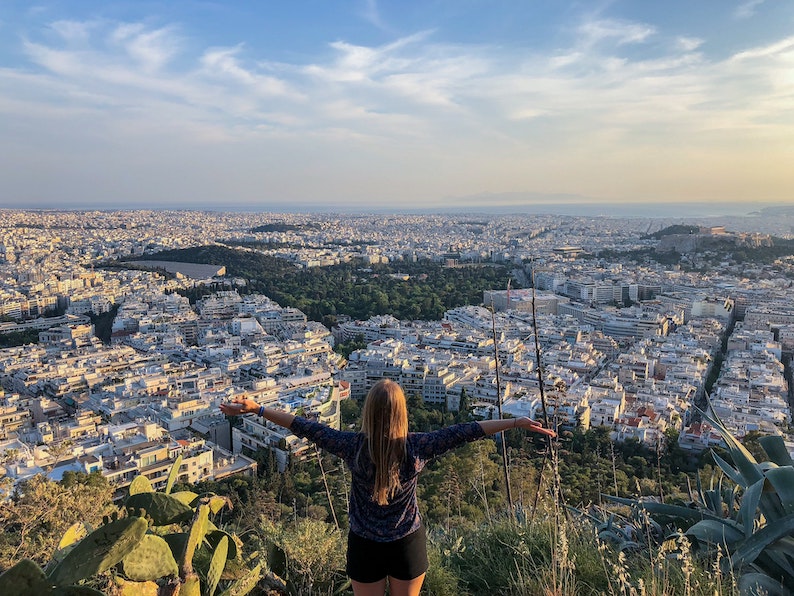
Greece is well known for its beautiful beaches, jaw-dropping sunsets and breath-taking landscapes. However, that is not all it has to offer, there are many more reasons why Greece is becoming an attractive location for Digital Nomads such as its great climate, safety, amazing food, quality of life, rich culture and reasonable prices to name a few. So, if you are a Digital Nomad interested in working from Greece, here is a few locations we suggest you consider, depending on what you are looking for:
- Athens
Athens is the Capital of Greece and is home to almost half of the population (just under 5 million people) and is rich in history and culture. The city is also home to the emblematic Parthenon and many more ancient monuments that decorate the centre of the city, they can also be seen from several locations around the city too.
Here you will find everything you need to be comfortable while working – fast internet connection and fairly priced apartments. Co-working spaces and many relevant events are taking place if you are looking for networking opportunities. In your free time there is many things you can do such as cultural events which are endless (going to the theatre on the land where it was born is a unique experience) and of course a vibrant nightlife with the great bar culture. The Athens “riviera” will keep you busy in the weekdays and as for the weekends, you also have many options for short trips around to astonishing places.
- Thessaloniki
Thessaloniki is the second biggest city in Greece, although it is a lot smaller than Athens. If you are thinking of working remotely from here, the experience will be similar to Athens. The city boasts a good internet connection, modern places to rent, co-working spaces and a variety of exciting events are taking place regularly across the city.
In regard to everyday life, the options are not as vast as Athens although it’s easier to move around short distances, there is also significantly less noise and traffic. The culture here is a lot more laid-back than in Athens, people tend to be a lot more relaxed and friendly. Similarly with Athens, there is many amazing places you can visit that are located nearby (Chalkidiki is a beauty).
- Crete
Crete is Greece’s largest island and is home to some of the biggest and nicest cities such as Heraklion and Chania. Here is where you can enjoy one of the best qualities of life and some of the top beaches of the world while you also get to experience the commodities of the bigger cities.
Keep in mind that Crete is large so it can take up to 4 hours to drive from the one side of the island to the other. So, if you do choose to go there, you will need to conduct some research in order to find the best area of the island for you. The east side (Agios Nikolaos) is quieter and more comfortable while the west side (Chania) is the perfect for tourists and is a lot busier. Heraklion is situated in the middle of the two, you can split travel times if you want to arrange trips around the island from here. The good thing about Crete is that you still have the big city feeling while enjoying life on an island, for sure it’s not going be an easy choice.
- Aegean Islands
Finding a place to work on the larger more popular islands will be fairly easy and you won’t experience many issues with the internet connection, however this may be more challenging to find on smaller islands. Here though, you will get to enjoy the best of Greece although it is more suited to people who can be more flexible with their jobs. We will go more in detail about that subject in another post.
- Ioanian Islands
These islands are influenced by Italian culture, you will also find that the weather is much milder than Aegean islands where there can be extreme wind for a number of days at a time. The wind makes these islands a paradise for sailors.
They are significantly larger than most of the Aegean islands and prove to have ideal conditions for working remotely. Living on these islands may leave you feeling a little isolated at times, however you always have the opportunity to travel and visit more of the country.
Moving Around
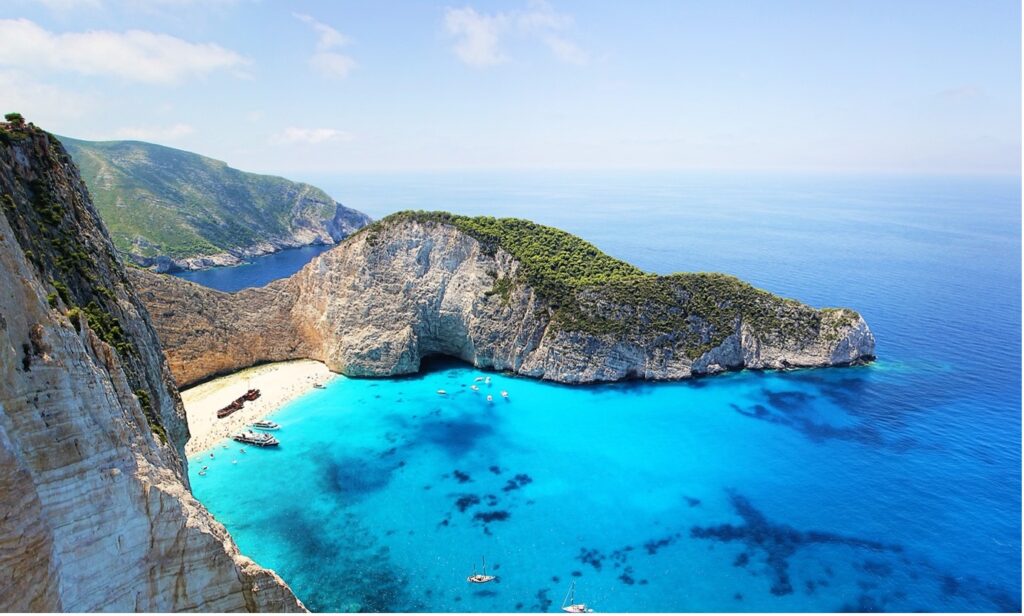
While Greece is not a large country, it is not as small as many people are led to believe. If you are in Athens and want to travel to Santorini or Mykonos, this could not be done in a day trip, even a long weekend may be a too tight of a schedule.
This is why choosing where you want to be situated is a very important decision. If you want to get to know the culture, Athens or Thessaloniki are probably the best places, whereas if you want to enjoy sea and sun then you should probably start considering the islands or calmer places along the coastline.
If you live in the mainland, by car is probably the best way to travel (at least in the mainland). This way you won’t be depending on the unreliable public transport, you will also be flexible to arrange your trip the way you like. The travel time can be an issue if you want to travel long distances. Here are some examples to get an idea:
Athens – Thessaloniki, around 5-6 hours
Athens – Sparta, around 3 hours
Athens – Evoia, around 1 hour
Athens – Patra around 2 hours
For getting from mainland to the islands, the best way to travel is probably by an internal flight if available, if this is not an option you could also make this journey by boat. You may find that flights especially in the summer may be limited, so it is best to book your plane tickets in advance. If you are not able to fly, don’t worry as travelling by boat will be cheaper and it is also a fantastic way to travel around in Greece (island-hoping is a great thing to do if you have the time).
Travelling by bus is probably the last resort while arranging a trip. It’s the least flexible way and maybe a bit tricky to find the information you need (we will help as much as we can). However, it is the cheapest option, and you don’t need to worry about paying deposits to car rental companies or having a couple of beers before travelling!
Wrapping It Up
We hope that this information can be useful as a starting point for your research, and you find it helpful. We will keep breaking it down for you. Feel free to send us your questions at [email protected] – we will either answer to you directly or plan our next posts accordingly in order to get the answers you are looking for!

